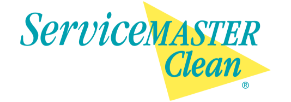Have you ever snagged a deal that seemed incredible, only to realize later it wasn’t quite what you expected because something important was missing?
This happens all too often in the world of commercial cleaning. What looks like a bargain price for janitorial services can end up costing more in the long run if critical details are left out.
When evaluating cleaning proposals for your facility, it’s important to dig deeper than the headline price. A surprisingly low bid might be skipping over one or more of these six essential factors:
1. Employee Wages
Staff wages make up the biggest slice of your cleaning services cost—generally around 60%. This depends on two main elements:
- The time required to clean your facility.
- Hourly pay rates for cleaners in your area.
Not all companies estimate these numbers accurately. The most reliable vendors will take careful measurements and ask detailed questions to produce precise calculations.
TIP: Local or regional cleaning companies often have a better understanding of area wage rates than large national providers.
2. Staff-Related Expenses
A thorough cleaning proposal should include employee-related costs beyond wages. This means accounting for payroll taxes, vacation time, benefits, uniforms, drug testing, and background checks. These expenses will vary depending on the company and location.
TIP: Vendors that invest in benefits for their staff tend to have happier employees, which often results in higher-quality work and lower turnover rates.
3. Cleaning Supplies
The supplies needed to clean your facility are another critical component of the overall price. This includes cleaning products like chemicals, rags, and scrubbing pads, as well as consumable items such as soap, hand towels, and toilet paper. Many vendors bundle the cost of cleaning supplies into their standard pricing.
TIP: Regional cleaning companies often secure competitive wholesale pricing on consumables. They can pass these savings on to you while also managing inventory to reduce your workload.
4. Equipment
Specialized equipment is often necessary to handle your cleaning requirements. The proposal should reflect these equipment costs, including depreciation for wear and tear over time. More complex jobs usually require higher investments in tools and machinery.
TIP: Companies using newer or well-maintained equipment tend to deliver better results and improve worker satisfaction, leading to greater efficiency.
5. Administrative Costs (Overhead)
Overhead expenses are the behind-the-scenes costs of running a business, such as insurance, HR, management, and accounting. These indirect costs should be factored into the quote but are typically consistent across customers and calculated as a percentage of the overall price.
TIP: Regional cleaning companies often run leaner operations than national chains, which helps them keep their overhead costs lower—and pass those savings on to clients.
6. A Fair Profit
Profit is a necessary part of any business model, and janitorial services are no different. Companies with a sustainable profit margin are more likely to offer consistent, dependable service and remain in business for years to come.
TIP: Choose a vendor with a proven track record, including strong references and years of experience.
Know What to Look For
If a cleaning proposal seems to be missing one or more of these critical components, make sure to ask questions. A low-ball price might seem tempting at first but could lead to subpar results—or extra costs—later on.
Interested in a customized cleaning proposal? Get in touch with us today!

